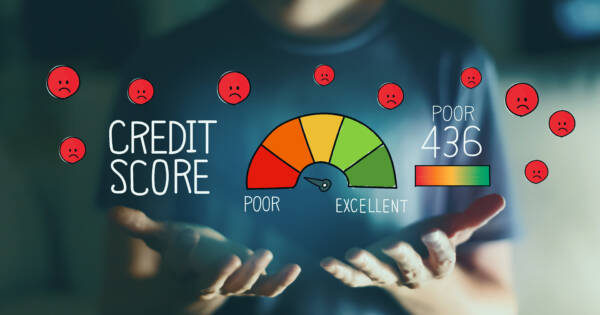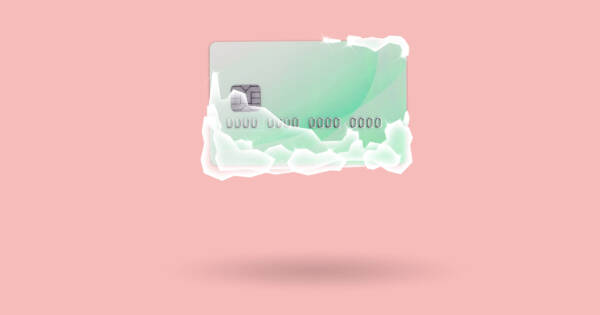Bankruptcy should always be viewed as a last resort. After all, the consequences of declaring bankruptcy are severe. They will impact many aspects of your financial life for years to come. The stress caused by this event can also adversely impact your mental health. Despite those consequences, bankruptcy is an all too common occurrence these days.
According to the website Debt.org, individual bankruptcies in the U.S. have grown steadily since 1980. The number of personal bankruptcy claims peaked in 2005 ahead of the financial crisis. At that time, one in every 55 American households filed for protection from their creditors.
Today, about 600,000 Americans file for bankruptcy every year due to an overwhelming amount of personal debt obligations. While there are no debtors prison in America, the consequences for making a bankruptcy claim are nevertheless severe. Here’s what happens to you if you file for personal bankruptcy.
One thing to note: Chapter 11 bankruptcy has to do with business bankruptcies, not individual or personal bankruptcies. Since we are a personal finance site, we won’t be addressing Chapter 11 filings. If you own a business and are considering bankruptcy, talk to a lawyer or an accountant. Or both.
Chapter 7 Filing – Liquidation Of Assets
There are two types of personal bankruptcy that you can file in the United States. The first one is known as Chapter 7 bankruptcy. It’s also known as “liquidation bankruptcy.” It typically requires you to sell off some (or all) of your assets in order to pay back what you owe. This liquidation can include your house, vehicles, personal belongings, and even your retirement savings.
Some states have laws that shield retirement accounts and houses from being sold off to pay debts. However, many states do not. That means literally all of your assets could be liquidated, and the money given to creditors. Be sure to know the laws that apply in California. It’s important to know what can and cannot be liquidated during a Chapter 7 bankruptcy filing.
Chapter 13 Filing – Repayment Plan
The other individual bankruptcy claim that you can make in the U.S. is known as a Chapter 13 filing. In this type of bankruptcy, your personal assets will not be sold off and liquidated into cash. Instead, your debts will be reorganized. You end up on a repayment plan so that you can pay off your debts, in full, within three to five years. If you fail to stick to the repayment plan (or accumulate additional debt during the repayment period), then your creditors may be able to go after your assets.
You have to actually qualify for a Chapter 13 bankruptcy filing. You can’t simply choose to do it. As of April 2019, your secured debts cannot be more than $1,257,850 and your unsecured debts cannot be more than $419,275. Seured debts are ones supported by collateral such as a house or car. Unsecured are things like credit card or medical debt. You should be aware that student loan debt is almost never subject to bankruptcy filings. The only way to erase it is to pay it off completely.
A Chapter 13 filing is generally viewed more favorably by banks, credit rating agencies, and other financial institutions. It shows you are trying to repay your debts, despite your current struggles. However, a Chapter 13 may not be feasible for everyone. It depends on how much debt you have and your income level. If you owe too much or make too little, you won’t qualify for a Chapter 13 filing. The math just won’t work out. You might be forced to file bankruptcy under Chapter 7, which liquidates your assets.
Cost Of Filing For Bankruptcy
Sadly, and ironically, filing for bankruptcy isn’t free. It can be quite expensive in fact – especially when you are already strapped for cash. The filing fee alone is about $350 for Chapters 7 and 13. And then there are the attorney fees on top of that. You can file without a lawyer, but we don’t recommended that. Bankruptcy laws can be tough to navigate without expert help.
Attorney fees for Chapter 7 average around $1,500. Meanwhile, Chapter 13 fees tend to be in the $2,000-to-$3,000 range. Obviously, the more complex your finances, the more it will cost you. There are ways to reduce the legal costs of filing for bankruptcy, though. Consider looking for a legal aid or non-profit group. Some lawyers also handle bankruptcy filings on a pro bono basis.
Whatever you decide, you should be aware that there are extra costs associated with eliminating the debts you owe. On top of filing and attorney fees, you will often be required to attend classes. Courts typically require credit counseling within 180 days before you actually file for bankruptcy. You might also have to take a debtor education course in order to get your debts discharged. Registration for these classes are not free either.
Damage To Credit Reports
A bankruptcy filing can stay on your credit reports for up to 10 years. A Chapter 7 bankruptcy, which eliminates all the debts you have, tends to stay on your credit report longer than a Chapter 13 filing. Either way, a bankruptcy will negatively impact your credit rating in a big way. Your ability to get credit cards and other loans will be greatly reduced for many years.
Keep in mind that bankruptcies are considered public record. Bankruptcy proceedings in the U.S. are filed in a system called Public Access to Court Electronic Records, or PACER for short. Banks, lawyers, and creditors can use the PACER system to look up information about your bankruptcy. So too can potential employers and landlords.
Your bankruptcy may come up when apply for a job, an apartment lease, or even when you try to rent a car. Some local newspapers even print public notices about bankruptcies for the community to see. The bottom line is that a bankruptcy filing will follow you around for a long time.
Future Employment Impacts
A survey by website CareerBuilder found that 29% of employers run a credit check on new job applicants. A bankruptcy filing will definitely appear on credit checks. It could affect your ability to get the job, especially if it’s in the financial industry, with a government entity, or requires you to handle money on a regular basis.
From the employer’s perspective, a bankruptcy could be a sign that you are financially stressed or irresponsible with money. Statistically, you are now more likely to commit theft or fraud. On a positive note, bankruptcies do not show up during a criminal background check. Filing for bankruptcy is not a crime, after all. However, it could lead to questions about your character and financial management skills.
Rebuilding Your Credit And Finances
Once you file for bankruptcy, you will have to begin the long process of rebuilding your credit and finances. This can take years – even a decade (or longer) to accomplish. Reorganizing your finances, living on a budget, and repaying your debts is a long term plan. It can take equally long to rebuild your credit.
The good news is that there are some lenders that specifically work with people who have gone through bankruptcy to rebuild their credit scores. These companies will help you secure loans again. They won’t be the best deals or greatest terms, but be honest with yourself. You just filed for bankruptcy, so you’re a huge financial risk for any lender. Suck it up, and start the slow rebuilding process.
Luckily, the credit scoring models favor new information over old information. So by making good financial decisions and starting positive credit habits (like paying off a credit card in full each month), it will be possible to rebuild your credit score.
When it comes to bankruptcies, remember that time is on your side. After a bankruptcy, take the steps needed to get your personal finances back on track. You absolutely can rebuild your credit. It just won’t happen overnight. Be sure to check your credit reports regularly. Make the effort to have any wrong or outdated information removed. Keeping your credit reports accurate and up to date is important, especially after a bankruptcy.
The Last Word
As you can see, filing for bankruptcy is no walk in the park. It involves a lot headaches and can cause significant financial hardship over a long period of time. As such, you should think carefully before deciding to file for bankruptcy. If your debts are so large and overwhelming that bankruptcy is your only option, then go ahead. However, it truly needs to be a last resort. Before you file, make every possible effort to get your finances on track. Even making slow progress on your debts is still progress, and probably a better option than bankruptcy. But if you’re drowning with no end in sight, go into a bankruptcy filing with an open mind. It could be a financial life saver.
 Shutterstock
Shutterstock







